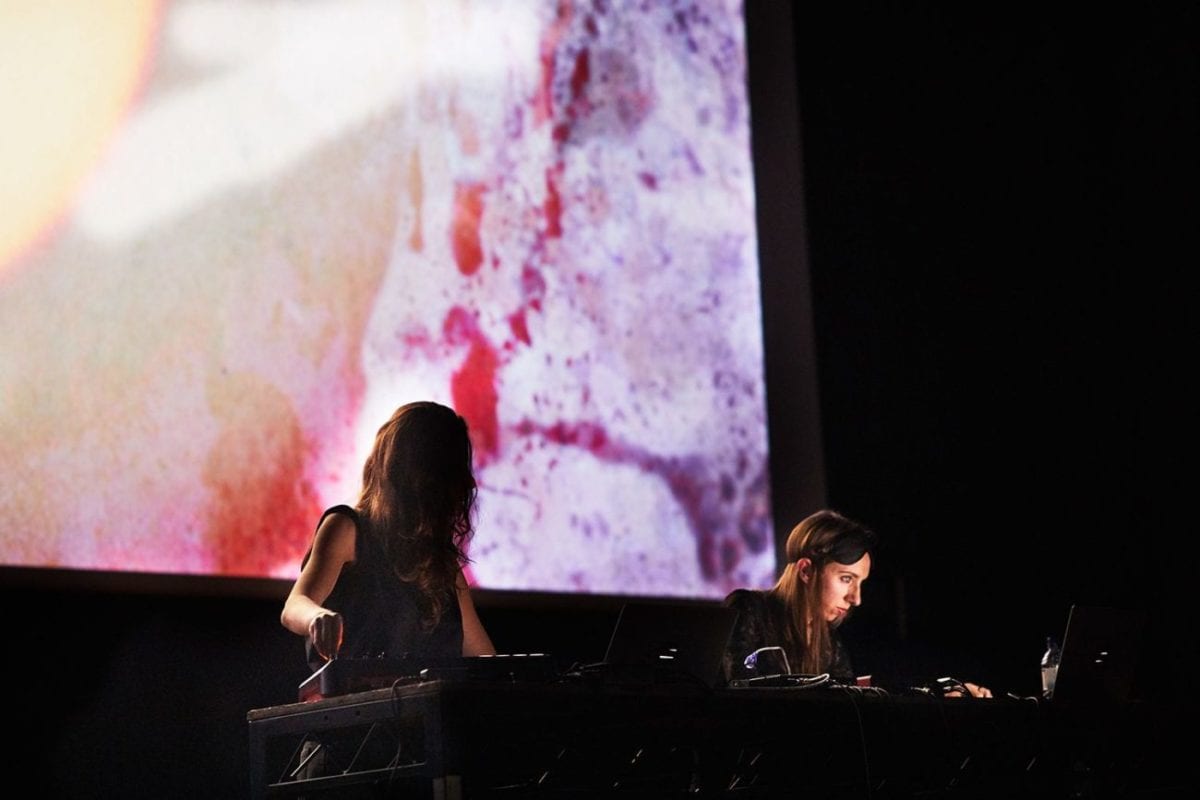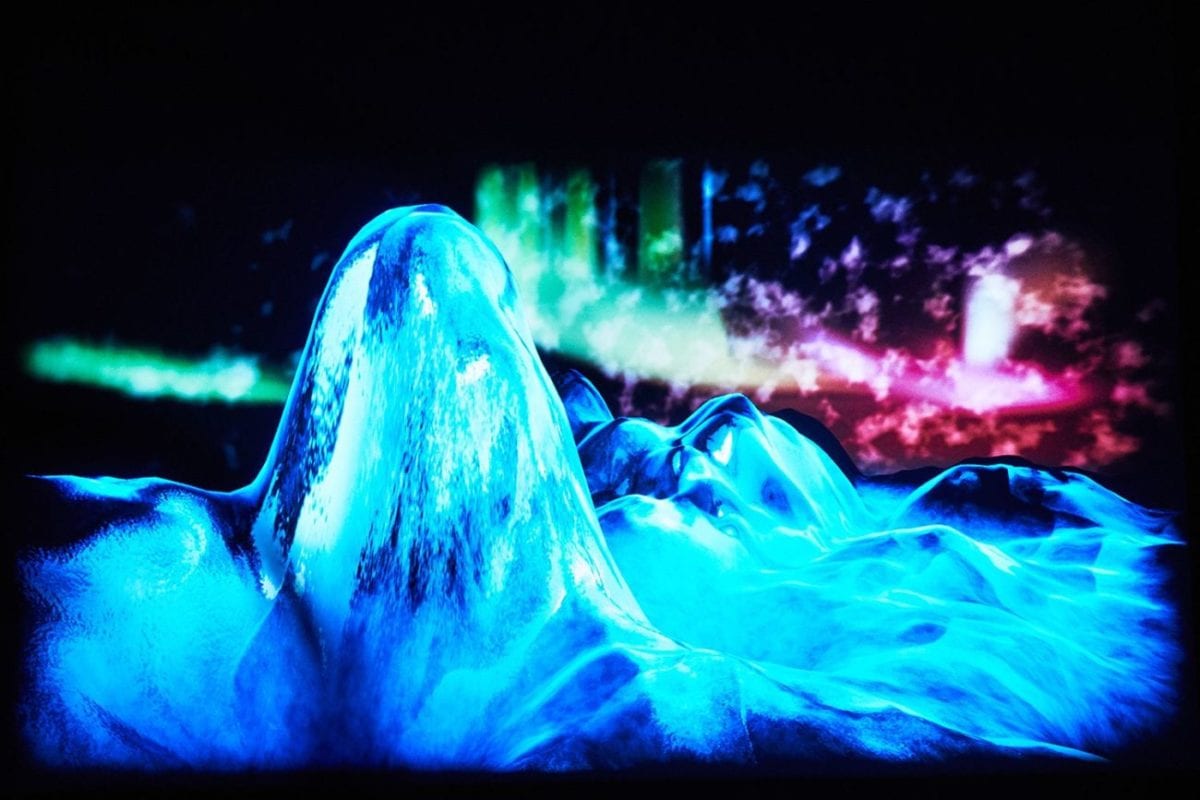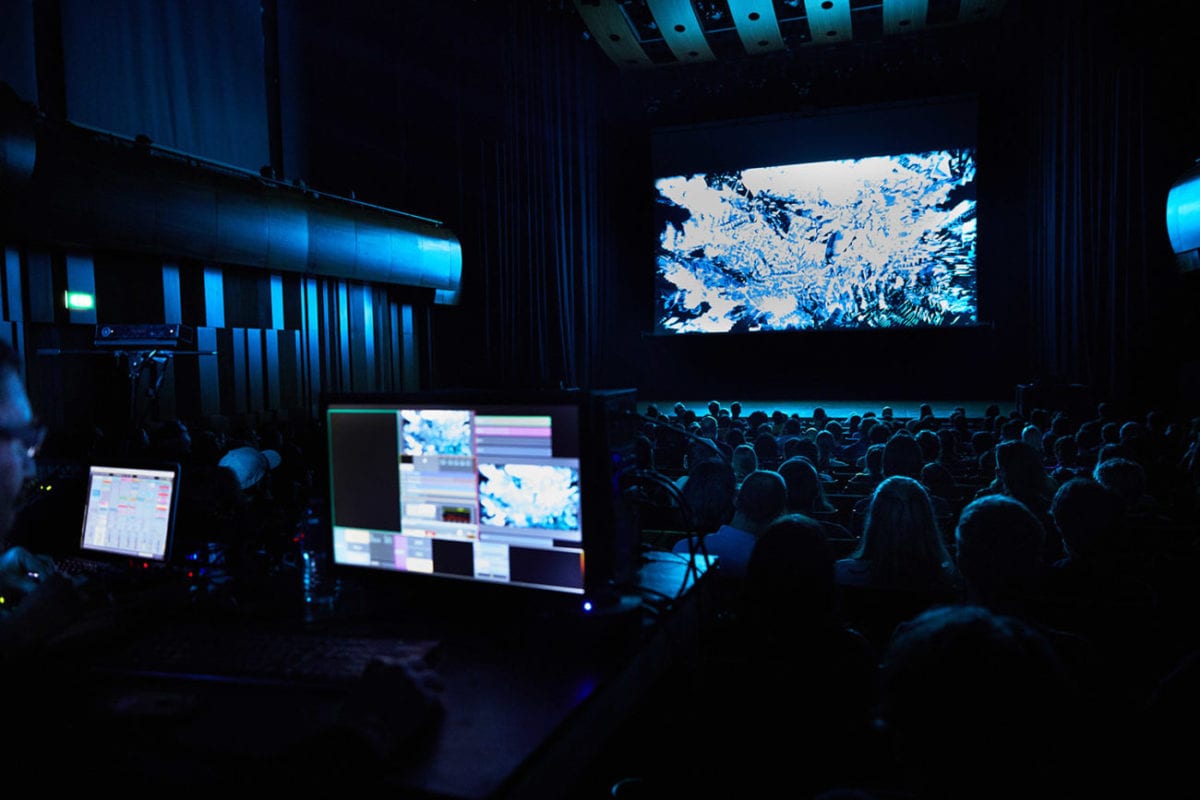
Live performance of electronic music can’t help but create a disconnect between artist, sounds created, and audience experience. Whether the performer is hunched over a modular synth or illuminated by the glow of a laptop screen, the connection between physical actions and sound generated is often far from obvious.
A consequence of this disconnect is a growing use of images – musicians collaborating with VJs and video artists to add a visual element to their performance. Often this feels contrived: projections tacked onto a live show, or electronic soundtrack forced into a gallery installation. On 18th October 2017, the Barbican’s Milton Hall was host to two performances which revelled in the opportunities offered by multimedia performance, realising the potential of electronic music to be more than a soundtrack, and instead actively drive and shape a narrative.
Spanish duo LCC (Ana Quiroga and Uge Pañeda) presented ‘Bastet‘, a work created in collaboration with Portuguese film maker Pedro Maia. The project is named after an Egyptian goddess of music and female power, and sees Maia’s projections used to translate LCC’s second album to the stage.

"Pedro Maia’s visuals, created from manipulation of 16mm + 8mm film, integrate seamlessly into the duo’s engagement, fleshing out the collision between ancient and modern suggested in the music."
The audio element of the performance has Pañeda and Quiroga generating rich ritualistic dub, from monolithic bass drones to monastic chanting, sirens and reverb drenched beats. There is a constant sense of two minds at play, collections of sounds always coming in pairs – sometimes orbiting around each other, other times clashing. Constantly combining into moments of harmony or shared chaos.
Pedro Maia’s visuals, created from manipulation of 16mm and 8mm film, integrate seamlessly into the duo’s engagement, fleshing out the collision between ancient and modern suggested in the music. Blocks of analogue flicker are interspersed with occasional moments of tangible shapes and images, blurred shadows coalescing into grainy ancient monuments. As with the musicians’ engagement with each other, Maia’s response to the sounds is conscious that moments of convergence are as vital as moments of abrasion.
Russian born Dasha Rush is no stranger to meshing together art forms. ‘Sleepstep‘, her remarkable 2015 opus for Raster Norton, interspersed minimal beats with glassy sound design, ASMR textures and vivid poetry. At Milton Hall she performed ‘Antarctic Takt‘, a collaboration with Stanislav Glazov that sees the pair combine to create an imagined Antarctica as an escape from the vagaries of the modern world.

"Glazov’s 3D, computer generated animations range from molecular level studies of ice to sweeping, permafrost covered landscapes."
Significantly, Rush doesn’t perform on Milton Hall’s sizeable stage, instead electing to set up behind the audience, in the projector booth with Glazov. It reinforces that the sound and vision were created as one entity, firmly shifting the performance away from a ‘musician and accompanying visuals dynamic’ into an integrated multimedia piece.
Glazov’s 3D, computer generated animations range from molecular level studies of ice to sweeping, permafrost covered landscapes. Rush’s soundtrack is rooted to club music, techno’s pulse felt through even the most ambient packages. Combined with the animations, Rush’s sounds amplify the detachment from time so crucial to a rave – the constant flow of beats, synths and samples capturing the vast, synthetic world depicted in the visuals. The effect is startling, by taking defining components of club music out of their context and into a seated theatre, Rush and Glazov unveil its vivid narrative potential.
Milton Hall is described on the Barbican’s website as a perfect setting for choral and chamber music. Dasha Rush and Stanislav Glazov, and LCC and Pedro Maia, used this setting to point towards the huge possibilities of fully integrating electronic music with images.
This event was curated by Clon. Photography by Ambra Vernuccio
Discover more about Dasha Rush and LCC on Inverted Audio.